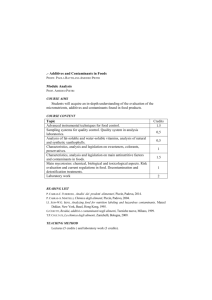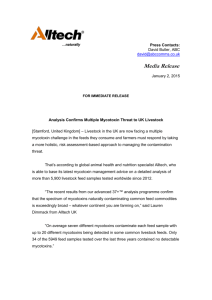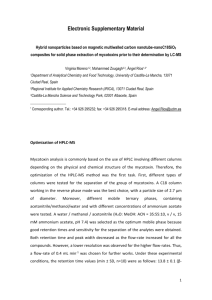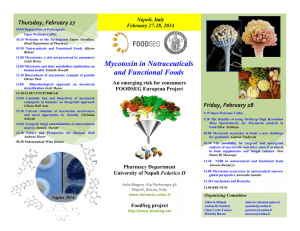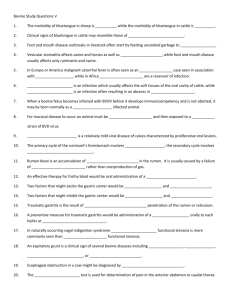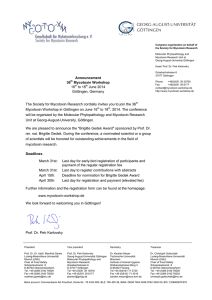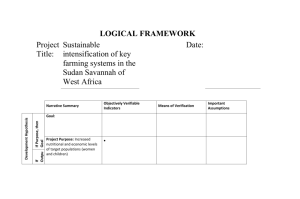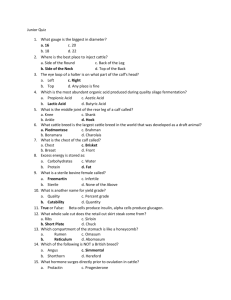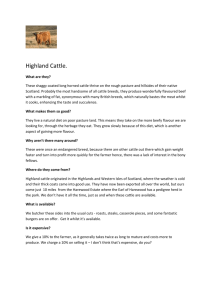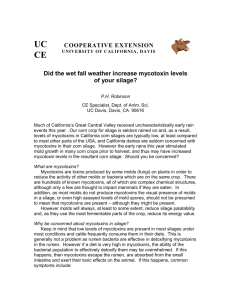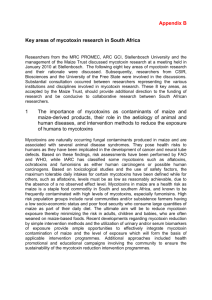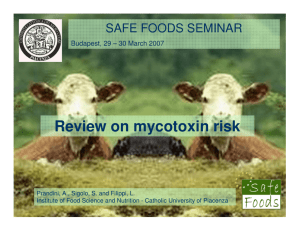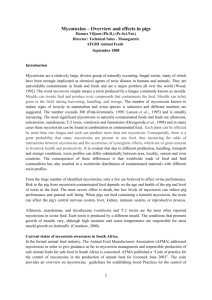Growing mycotoxin threat_UK farming press release
advertisement
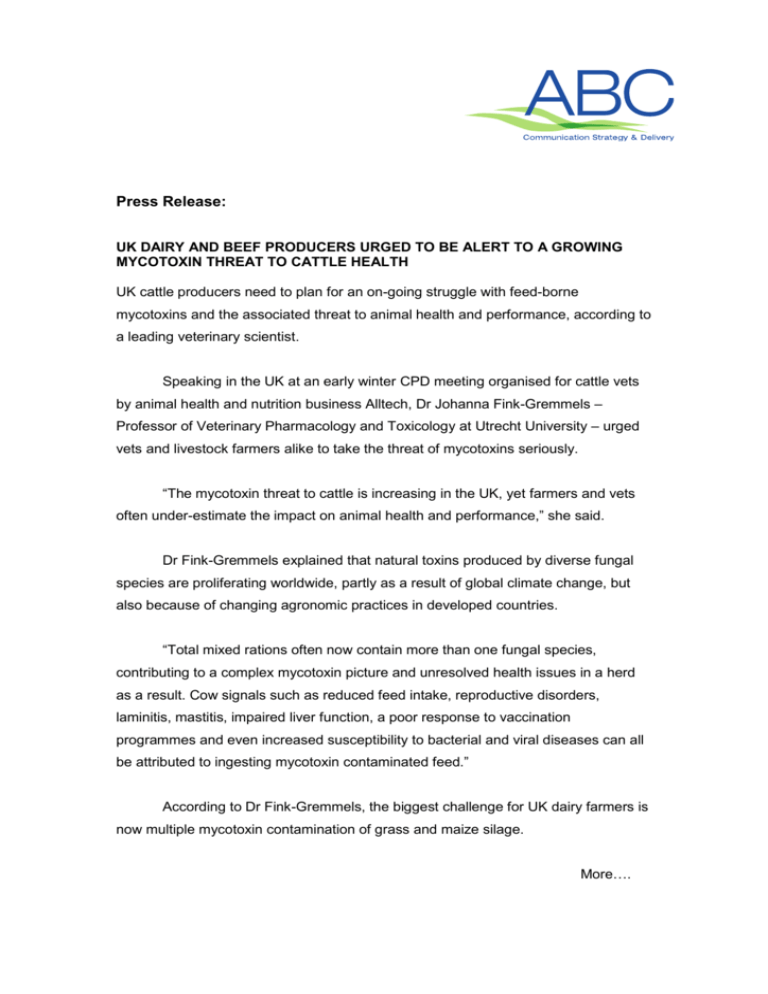
Press Release: UK DAIRY AND BEEF PRODUCERS URGED TO BE ALERT TO A GROWING MYCOTOXIN THREAT TO CATTLE HEALTH UK cattle producers need to plan for an on-going struggle with feed-borne mycotoxins and the associated threat to animal health and performance, according to a leading veterinary scientist. Speaking in the UK at an early winter CPD meeting organised for cattle vets by animal health and nutrition business Alltech, Dr Johanna Fink-Gremmels – Professor of Veterinary Pharmacology and Toxicology at Utrecht University – urged vets and livestock farmers alike to take the threat of mycotoxins seriously. “The mycotoxin threat to cattle is increasing in the UK, yet farmers and vets often under-estimate the impact on animal health and performance,” she said. Dr Fink-Gremmels explained that natural toxins produced by diverse fungal species are proliferating worldwide, partly as a result of global climate change, but also because of changing agronomic practices in developed countries. “Total mixed rations often now contain more than one fungal species, contributing to a complex mycotoxin picture and unresolved health issues in a herd as a result. Cow signals such as reduced feed intake, reproductive disorders, laminitis, mastitis, impaired liver function, a poor response to vaccination programmes and even increased susceptibility to bacterial and viral diseases can all be attributed to ingesting mycotoxin contaminated feed.” According to Dr Fink-Gremmels, the biggest challenge for UK dairy farmers is now multiple mycotoxin contamination of grass and maize silage. More…. “Cattle health problems with feeding obviously mouldy silage are relatively well understood. But new harder to detect fusarium toxins – such as, for example, Enniatins and Beauvericin contaminating cereal grains – are also now being found in pasture grass in Northern Europe. These will also adversely affect the efficiency and function of the rumen,” she said. “The rumen determines the health and productivity of the cow. When rumen bacteria are suffering the liver does not function correctly initiating a cascade of adverse events; and often a generalised inflammatory response is triggered, which leads to a loss of production.” Dr Fink-Gremmels added that in the future farmers will need to select feed crop plants that are more resistant to fungal invasion and will also have to re-adjust tillage methods to reduce mould contamination. “However, we know that this alone will not stamp out mycotoxin contamination without creating a biological vacuum that will be filled with other micro-organisms. “Consequently, it will be essential to continue to apply strategies such as rigorous on-farm risk assessment and the use of appropriate in-feed mycotoxinsequestration agents (binders) to prevent the production-limiting and adverse health effects in our farmed livestock,” she said. - ends Photo supplied: The biggest challenge for UK cattle producers is mycotoxin contamination of grass and maize silages. Notes to editors 1. This news release has been distributed to media in the UK on behalf of Alltech. 2. Founded in 1980 by Dr. Pearse Lyons, Alltech improves the health and performance of people, animals and plants through natural nutrition and scientific innovation. With more than 3,000 employees and a presence in 128 countries, the company has developed a strong regional presence in Europe, North America, Latin America, the Middle East, Africa and Asia. For further information, visit: www.alltech.com For media assets, visit: www.alltech.com/news Date: 2nd December 2015 Further information from: David Butler, ABC Ltd. Tel: 01694 731777/07767 386401 E-mail: david@abccomms.co.uk

